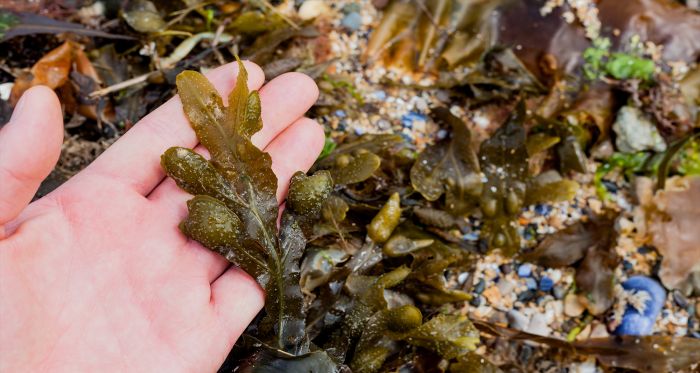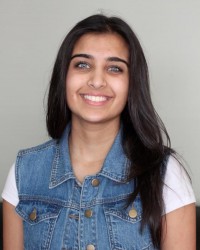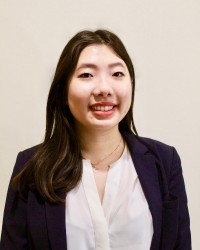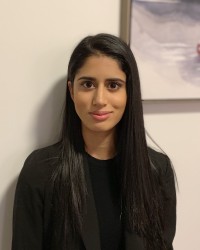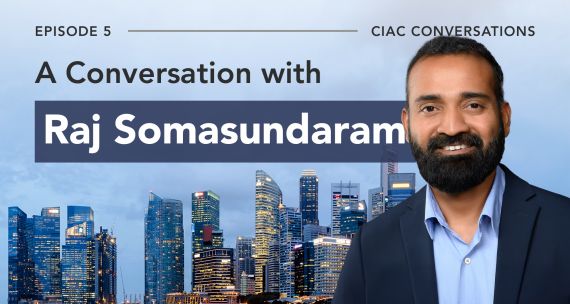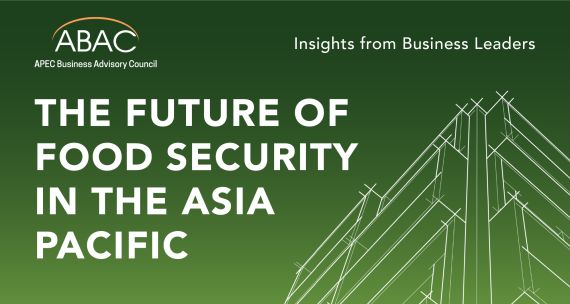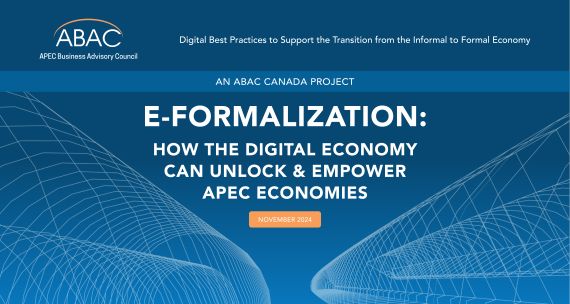As part of the Asia Pacific Foundation of Canada’s APEC-Canada Growing Business Partnership team, University of British Columbia international relations and political science students Avneet Darred, Sandra Lin, and Chanpreet Pabla had an opportunity to interview David Christian, a social entrepreneur who founded Evoware, an innovative waste-free packaging enterprise.
Evoware was created after David returned to Indonesia following his education in Canada only to find that his country is the world’s second largest contributor of ocean plastics, but also the largest seaweed producing country in the world, with most of it being unused.
David saw this as an opportunity to create positive social change by using Indonesia’s seaweed to reduce waste while simultaneously employing and improving the lives of poor seaweed farmers. Today, that seaweed is being transformed by Evoware into bioplastic packaging that is edible, natural, and biodegradable. The products maintain seashore cleanliness, reduce plastic use, and help give back to the local community while contributing to environmental change worldwide. We spoke with David in October 2018 to gain insight into his company and advice for other small-business entrepreneurs.
David Christian in a video introduction to Evoware.
Q: As a young entrepreneur, what were some of the greatest challenges you faced in the initial start-up phase of your company and how were you able to overcome them?
A: I think the biggest challenge for me was gaining experience. Evoware is actually my first business so I had to learn a lot before creating it. For example, I was only aware of the growing waste problem in Indonesia when I returned to the country in 2015. So, it was important for me to learn about the industry and educate myself on these unfamiliar areas in order for our product to address this specific environmental issue. I think I’ve also been lucky to have two partners who already have a lot of business experience to help guide me. My first business partner, Edwin, was the vice-president of a private equity firm in Indonesia, so he assisted me with financial affairs when I was first starting out. And my other partner, Nory (Noryawati), has a lot of scientific experience so she is in charge of the research and development. I think it’s just important for young people to be open-minded and listen to others who may be more knowledgeable and can offer advice.
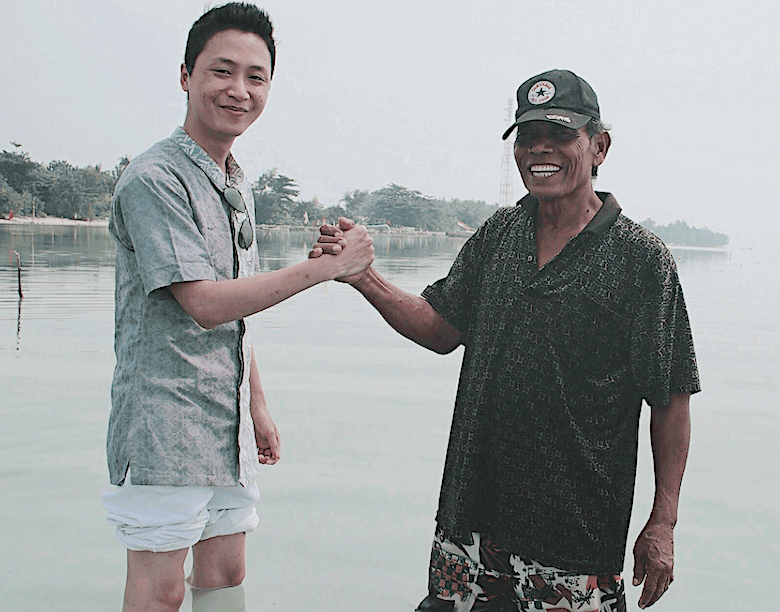
Evoware Founder & CEO with a local seaweed farmer in Indonesia. | Photo Courtesy: Evoware
Q: What screening process does Evoware go through to find seaweed farmers? Once a collaboration has been established, does Evoware educate the farmers on how their work impacts the environment/sustainability?
A: There have been instances where farmers are not providing accurate measurement of how much seaweed they are actually providing us. For instance, we received 200 kg of seaweed but there was a lot of sand and rocks contributing to the total mass of the shipment. To combat this issue, we try to find local partners that can help us maintain the quality of the seaweed. Currently, we work with co-operatives in Makassar (a port city on eastern Indonesia’s Sulawesi island) that are helping us sort seaweed directly from the farmers. They consist of 1,200 farmers who work with their wives and children to make sure the seaweed meets our quality standards. And since the co-operatives already have strong relationships with the farmers, we have them educate and engage in conversations with the farmers on how their work is providing a positive environment impact in the world.
Q: We read in The Guardian that your company will be fully automated in 2019, and that seaweed packaging will cost 30 per cent more than plastic. What strategies will you use to compete with the existing plastics industry?
A: Environmental issues are a big topic right now. If companies change their plastic packaging to our seaweed packaging, it shows they actually care about the environment and are taking active steps to combat environmental issues. This can help significantly increase the value of their brand. User application is another important aspect. For example, our seasoning sachets make it easier for customers to consume products by creating a practical and beneficial way for them to save time and reduce waste simultaneously. It also adds nutritional value to products like instant noodles that otherwise lack nutrients. All of these factors add value to our product that plastics cannot provide. When we bring these added values, our price is going to look much cheaper than conventional plastics. Also, I think government inclusion is very important. The amount of money the government spends to clean up plastic waste is actually much higher than the production of plastic itself. So, if we compare our seaweed packaging to plastics, it is actually going to be much cheaper.
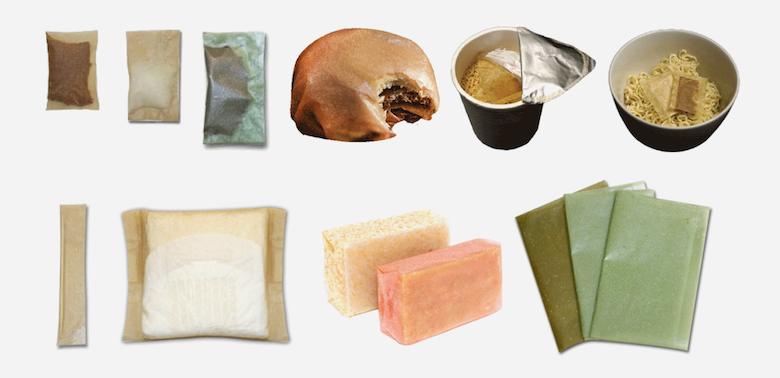
A selection of Evoware's innovative seaweed-based products. | Image Courtesy: Evoware
Q: Can you talk about Evoware’s international endeavours? For example, what are some countries that you are currently selling your product to and/or steps you’re taking to reach the global market? Also, we noticed on your website that you only make sales transactions online, how are you able to successfully operate without a physical store/sales platform?
A: Our company has already begun selling packaging to other countries. We make about 14 per cent of our total sales in Indonesia and the other 86 per cent internationally. Currently, we sell small quantities to companies to test our packaging with their products. Then they can make suggestions on possible improvements, which we try to implement in their next orders. Since last October (2017), we have worked with about 400 companies and have invested and sold to over 30 countries, mostly from Europe and the U.S. Our global marketing strategy has been about maximizing our reach through social media. We often receive attention from the media. Recently one of our videos went viral and had over 10 million views. And instead of using forceful sales tactics, we try to show the value our product brings. I believe this is the reason customers buy from us and how we are able to operate without an actual store. We sell through our email and website, but we mainly make sales from the online platforms that our customers find us through like, Whatsapp, Instagram, and Facebook. We also work with private techs, NGOs, and local governments to create events, which increases our exposure as well.
Q: What type of advice do you have for small businesses that are trying to network/partner with bigger business and expand their reach?
A: I think the most important thing is to know your value first. If you know your value, it doesn't really matter if you work with a big business or not. For us, we do work with big fishing companies, but we do not prioritize them, even if they want exclusivity. We want to work with companies that have the same mission as us so that our product can be inclusive and eventually replace plastic packaging. Our intention is not focused on only money but on the impact that we make. The money will follow afterwards.
We would like to thank David Christian for taking time to give us a personal account of the inner workings of his company and its future endeavours. Evoware serves as an inspirational model for zero-waste packaging and creating widespread social and environmental change. We hope to see more MSMEs like his!
